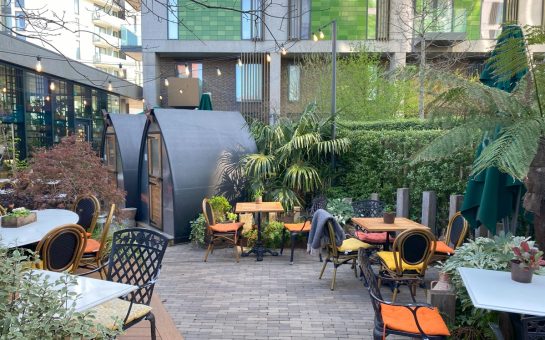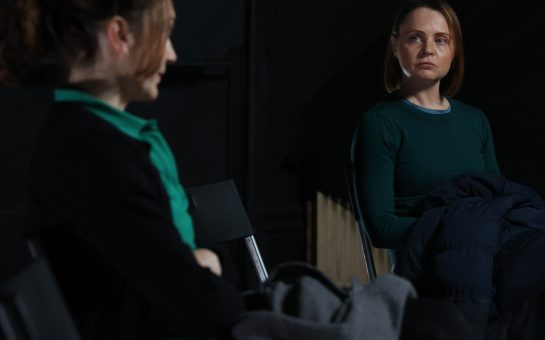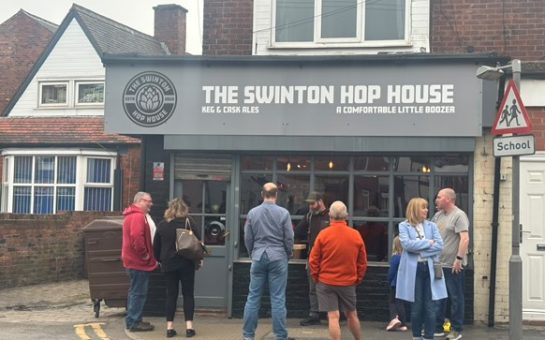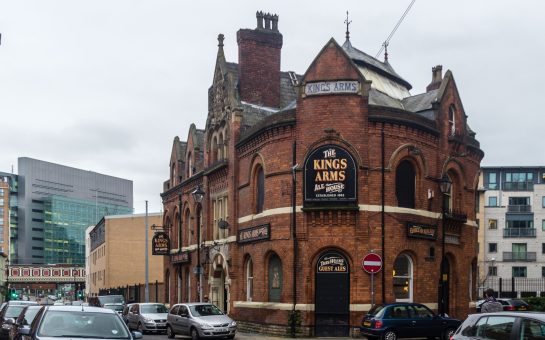Covid-19, Coronavirus, Rona. Whatever you want to call it, this virus has pretty much halted, or altered, everybody’s lives.
For many, they’re working from home, miss a trip to the pub, the theatre, or the comedy club.
For those working on the frontlines of the entertainment industry, it means no work and furloughed pay. The closure of these venues looks longer than originally thought, with the government now suggesting that bars, theatres, and other venues may not open fully for more months.
This begs the question: what will the future of arts venues, and those who rely on them, look like?
Thanks to the government’s furlough scheme, those in the industry are not without pay. But many of those who work front of house also aspire to be on the stage and have had their opportunities ended.
Annabelle Devey, 21, is an up-and-coming comedian who works at the Comedy Store, both as a comic and behind the bar. She is worried about the future of stand-up.
“I’ve got no progress, the whole circuit is down,” she told MM.
“Friends who are full time comics have no income, and are not reassured.”
It is likely, with theatres and arts venues being big capacity areas, that they will not be re-opened in a hurry.
THE WEST END WILL BE CLOSED at LEAST UNTIL the END of JUNE – NEWS
The Society of London Theatre (SOLT) has released a statement confirming that all performances at West End venues will be cancelled until at least 28 June.https://t.co/Jv74PY5FeZ pic.twitter.com/a4vjmONyXB
— londontheatrereviews (@londontheatrer1) May 5, 2020
If furlough is to ease off after July, I sincerely hope the PM has a miraculous response to closed theatres, production sets and arts centres?
The Creative Industries will be needed even more when we are all free to use them. They must not be left to wither on the vine.— Jonny Geller (@JonnyGeller) May 6, 2020
Starting to contemplate the unthinkable…. https://t.co/1dJaeqa15Z
— Matthew Bourne (@SirMattBourne) May 4, 2020
The Lowry and the Palace and Opera House are all closed while other Manchester venues have simply shut their doors until further notice.
The time without trading is something not lost on Creative Venue Technician Apprentice, Ellie Bickle, 25, who works backstage at the Lowry.
“Many venues have lost significant income, having to cancel or postpone productions.”
Future fears exist, and they are worrying Annabelle who is concerned with the uncertainty of the next few months.
“People will want to sit in a beer garden and enjoy a pint. But I can’t tell if people would want to go to big events.
“We’re in quite a lot of trouble, we’re going to lose so much money. I don’t know if people will come back.”
And, as Ellie points out, “theatre is considered a luxury.”
‘ART ALWAYS SURVIVES’
It isn’t, however, a luxury for the workers who have mixed reviews of how the government has dealt with the crisis.
Annabelle, who appreciated the furlough scheme, was critical of the government’s initial response to the crisis.
“February has been described as wasted and it’s true, February could have been a time to be proactive.”
In terms of timing, Ellie had a similar attitude.
“I understand that this is a completely unprecedented situation, but I think the government’s response (so far) has been fairly weak.”
George Kelly, 20, a second-year student at The Arden, working part-time at the Palace and Opera House Theatres, however, supported the government’s response.
Despite not supporting the Conservative government, George admitted that the government is “doing the best they can in this situation which had never been faced by any country.”
However George’s situation is different to both Ellie and Annabelle as they both work full-time and George is a student.
“The only effect has been on my training but I don’t doubt it will have some effect on my future career as some venues will shut down for good, providing less job opportunities,” said George.
This sentiment is shared not only by Ellie, who suggested that “without support, many people will have lost career opportunities and some smaller venues may have to close permanently.”
But also many industry leaders are worried about the future of smaller venues, who do not have funds to see them through: something that Leicester Curve’s chief executive Chris Stafford and artistic director Nikolai Foster described as “a perilous and uncertain future”.
However, despite all of the negative assumptions of the near future, Annabelle, Ellie and George were all certain that the industry will come back fighting.
While Annabelle is a little bit more sceptical, suggesting that arts venues will require a strategic rebuild, George was more upbeat.
“Performing arts will find its way back. Whether or not it’s a slow or fast recovery, I don’t know.
“But as the arts are an essential part in almost every single person on the planet’s lives, I think it will find its feet again,” he said, while Ellie was just as confident.
“It will take time, but art always survives.”



